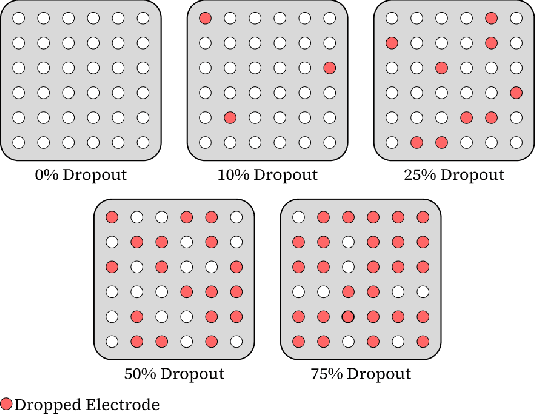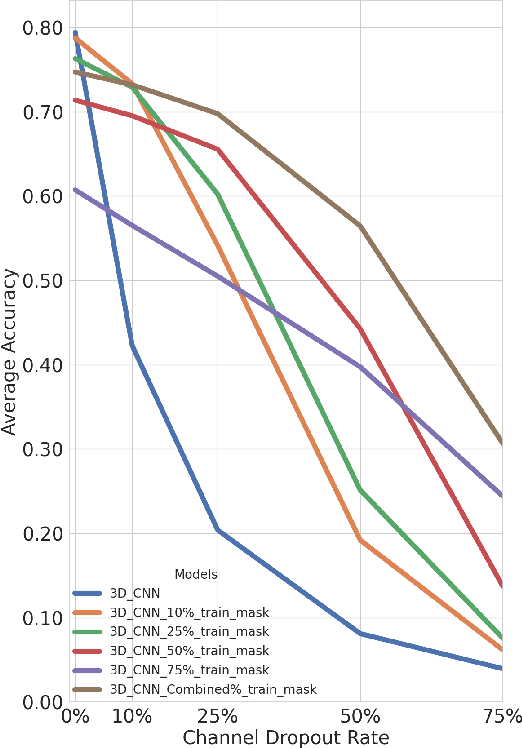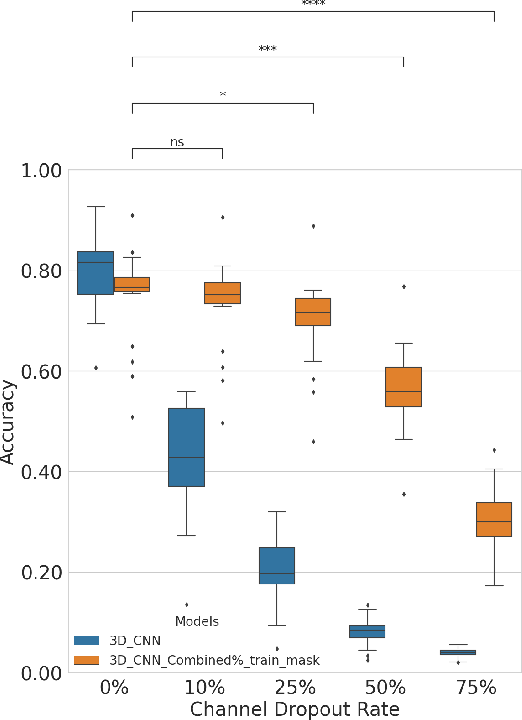Raghav Katoch
From Unstable Contacts to Stable Control: A Deep Learning Paradigm for HD-sEMG in Neurorobotics
Sep 20, 2023



Abstract:In the past decade, there has been significant advancement in designing wearable neural interfaces for controlling neurorobotic systems, particularly bionic limbs. These interfaces function by decoding signals captured non-invasively from the skin's surface. Portable high-density surface electromyography (HD-sEMG) modules combined with deep learning decoding have attracted interest by achieving excellent gesture prediction and myoelectric control of prosthetic systems and neurorobots. However, factors like pixel-shape electrode size and unstable skin contact make HD-sEMG susceptible to pixel electrode drops. The sparse electrode-skin disconnections rooted in issues such as low adhesion, sweating, hair blockage, and skin stretch challenge the reliability and scalability of these modules as the perception unit for neurorobotic systems. This paper proposes a novel deep-learning model providing resiliency for HD-sEMG modules, which can be used in the wearable interfaces of neurorobots. The proposed 3D Dilated Efficient CapsNet model trains on an augmented input space to computationally `force' the network to learn channel dropout variations and thus learn robustness to channel dropout. The proposed framework maintained high performance under a sensor dropout reliability study conducted. Results show conventional models' performance significantly degrades with dropout and is recovered using the proposed architecture and the training paradigm.
 Add to Chrome
Add to Chrome Add to Firefox
Add to Firefox Add to Edge
Add to Edge